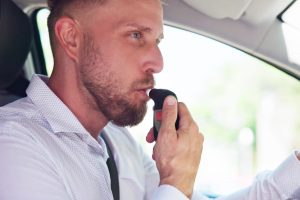A Florida bill that would have required drivers who refuse to submit to breathalyzers to immediately install ignition interlock devices has died in the House committee.
Broward defense lawyers had been greatly concerned that the proposed Florida DUI law would run afoul of 4th Amendment Due process rights.
HB 39 and its companion bill, SB 260, would have required any driver arrested for DUI who refuses to submit to a lawful breath test to automatically be required to install an ignition interlock device on their vehicle. This would be done at the driver’s own expense – which can cost anywhere from $670 to $1,610 The first refusal would result in a one-year license suspension and subsequent incidents of refusal would result in an 18 month license suspension. The DMV would require such placement before issuing a permanent or restricted driver’s license related to such refusal.
For those who may be unfamiliar, ignition interlock devices are small, electronic devices (about the size of a cell phone) wired to a vehicle’s ignition that require the driver to provide a breath sample negative for alcohol before the car will start. Drivers may also be periodically required to provide a breath sample to ensure they aren’t drinking while driving.
The reason this particular bill rankled Broward defense lawyers is because it appeared to impose a penalty right after arrest – not as a punishment following conviction. People arrested are innocent until proven guilty. This is a fundamental foundation of our criminal justice framework. To impose a penalty on someone incidental to arrest, when they are still presumed innocent, is a violation of due process.
Florida follows the implied consent rule for breathalyzers. Per F.S. 316.1932, driving is a privilege, and it’s implied that anyone who accepts that privilege has consented to submit to an approved chemical test (typically a breathalyzer test), to ascertain the amount of alcohol in their system if they’re suspected of DUI by law enforcement. Refusal to comply with implied consent laws is an automatic license suspension – regardless of whether you ultimately get convicted of DUI.
A spokesman with the Florida Association of Criminal Defense Lawyers had told the Florida Bar Journal that while sponsors of the bill were “definitely coming from a good place,” tacking penalties onto the administrative side of license suspensions wasn’t the way to go. If they were to instead impose the penalties on the conviction side of things, there would be far less concern about due process violations. At least that way, the person has had their day in court. Plus ignition interlock is already a mandated penalty for certain DUI convictions, such as a second or subsequent offense. (The court can also order installation of ignition interlock after a first DUI offense, but it’s not required.)
The bill was also a bit vague as far as how it would be applied. When a person is arrested for DUI and/or has their license suspended in connection with refusing a breathalyzer, they first have 10 days in which to contest the license suspension. They can drive during that time. If they contest and lose at that hearing, they have to wait 90 days, after which they can ask for a restricted license, also known as a hardship license, that allows them to drive to work, school, etc. Defense lawyers had assumed that this requirement for ignition interlock would have applied to that hardship license, but the bill didn’t actually specify. Even if it was, the concern was we’d still be dealing with a penalty imposed prior to conviction.
It’s also worth noting that hearings for contested license suspensions are often delayed. It is sometimes months before a person gets to make their case to a hearing officer. If the intent of the bill was to impose ignition interlock installation immediately after arrest, this again would fly in the face of due process. A staff analysis by the state senate estimated it would need additional hearing officers and administrative staff to pull this off, costing $1.1 million annually.
Backlogs for these hearings prompted an arrangement years ago in which the person waives their right to a hearing, and in exchange accepts the administrative suspension and is immediately granted a restricted license (assuming they meet the criteria). This option becomes less appealing if they had to not only forego their due process rights and accept the restricted license, but also a $1,000 ignition interlock device.
Thankfully, Florida lawmakers have since agreed not to move forward with this proposal. It died on the third reading in the House Fiscal Policy Committee.
If you have been arrested for DUI in Broward County, we can help. We represent clients both in the criminal proceedings, as well as contesting license suspensions.
Call Fort Lauderdale Criminal Defense Attorney Richard Ansara at (954) 761-4011. Serving Broward, Miami-Dade and Palm Beach counties.
Additional Resources:
CRIMINAL DEFENSE BAR SAYS ALCOHOL-DEVICE BILL MAY SKIRT DUE PROCESS, Dec. 21, 2024, Florida Bar Journal
More Blog Entries:
Can I Really Get a Fort Lauderdale DUI on a Golf Cart? Oct. 2, 2024, Broward DUI Defense Attorney Blog
 Fort Lauderdale Criminal Attorney Blog
Fort Lauderdale Criminal Attorney Blog


